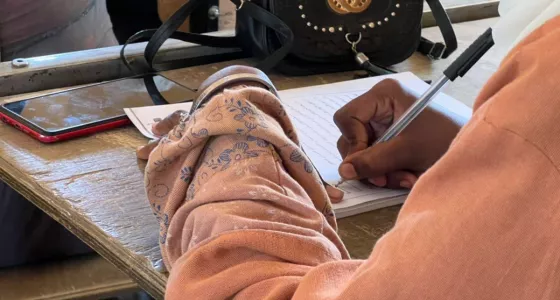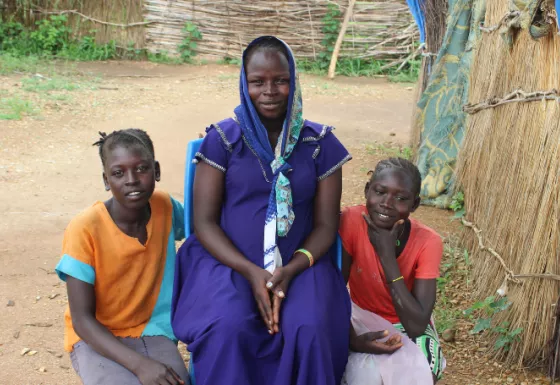Across Sudan, a tragedy is unfolding, one that threatens to steal the future of an entire generation. Since April 2023, the number of children in urgent need of protection, mental health care, and education has doubled. Today, 15 million children are in desperate need of help.
The crisis has torn apart communities and left the most vulnerable, especially women and children, facing unimaginable hardship. Although some schools in Sudan are beginning to reopen, most remain closed, leaving 17 million children with no access to education. Classrooms once filled with laughter and learning stand empty, their doors locked and their chalkboards silent.
For many children, the loss of education is only part of the story. Every day brings new dangers: family separation, child marriage, trafficking, and violence. Countless children have endured trauma no one their age should ever experience and tragically at least 480 have been killed. Those forced to flee their homes travel vast distances on perilous journeys, searching for safety and hope in a world that seems to have forgotten them.
Children make up around half of all people forced to flee their homes and displaced inside the country and across its borders. Their paths to neighbouring countries, including Chad, South Sudan, and Uganda, are fraught with danger. Many children arrive alone, separated from parents or siblings, exhausted and terrified.
But even once they cross into safety, conditions remain dire. Neighbouring nations, already struggling with limited resources, are overwhelmed by the influx. Reception centres are overcrowded. Recent cuts in government aid spending mean that the safety nets and support systems that should protect these children are verging on collapse.
These children have survived horrors no child should ever witness. Without immediate action and investment, millions of Sudanese children will lose not only their homes, but their futures too.


